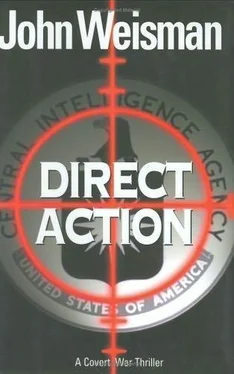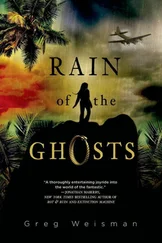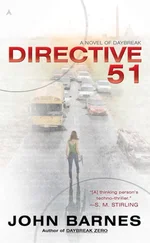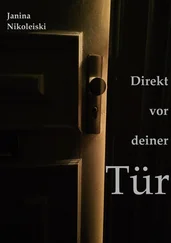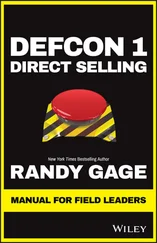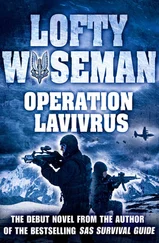From the way the trap was set, it was obvious to Tom they’d assumed he’d be driving a car. Why? Because Henry J. NOTKINS and his boss, Harry Z. INCHBALD, were idiots.
In fact, Tom could make out INCHBALD in the front seat of the Citroën facing him. It was Liam McWhirter, all right, even though he was wearing a Harpo Marx wig, fake eyeglasses, and a light disguise prosthetic: still the same red-faced, porcine drunk. Tom adjusted the binoculars. Jeezus, McWhirter was even wearing his trademark wrinkled blue button-down Brooks Brothers shirt under the tan Nautica golf jacket.
Tom panned the other seven, but found no familiar faces. He went back to McWhirter, who was holding his radio upside down, speaking into the mike out of the side of his mouth. Nothing like being obvious. What the hell were these guys trying to do?
Tom had told Margolis he’d be driving. He hadn’t said what he’d be driving. But Margolis assumed it would be a car-and that, no doubt, is what he’d told Harry Z.
Too bad. Tom shut the engine off, raised his visor, and adjusted the prosthetic. Then he pulled a detailed road map of Paris et environs out of his saddlebag. He sat sideways on the BMW’s saddle, arms crossed, studying the map, and worked out two alternate evasion and escape plans, just in case he’d need them.
10:55. Adam Margolis, CIA bait boy, appeared on the front steps of the apartment house. He was carrying a legal-size brown envelope. Tom adjusted the focus on his binoculars and looked into the windshield of the Citroën facing him. Harry Z. INCHBALD pointed at Margolis, smacked the driver’s arm, and spoke into the radio. The driver reached down and forward with his right hand. Turning the ignition key, no doubt. Tom watched the big sedan vibrate slightly as the driver gunned the engine. He focused on the other Citroën, and the two vans. All the drivers were revving engines. They were good to go.
So was Tom. But he didn’t go anywhere near Henry J. NOTKINS or Harry Z. INCHBALD. That move would have been pure Hollywood bull puckey. Sure, if Tom were being played by Brad Pitt in a Jerry Bruckheimer movie directed by Michael Ritchie, he’d gun the bike, roar down the street, veering at the last minute onto the sidewalk, where he’d knock a couple of fruit stands into next week, slalom past terrified knots of pedestrians, snatch the envelope out of Margolis’s hand, and thread the needle at the end of the blocked-off street (missing the blocking van by microns). Then, after using a parked car as a ski jump for the motorcycle, he’d skedaddle. The two Citroëns and two vans would careen after him, and there’d be a wild, six-minute wham-bam-slam jump-cut chase against on-coming traffic that would end with all the bad guys’ vehicles wrecked, Tom in the clear, and moviegoers on the edge of their seats.
So much for fantasy. Tom, who had once rear-ended his Agency vehicle and spent thirteen hours on the damn postaction paperwork justifying the expense, backed the bike around the corner, shut the motor off, then wrestled the Beemer onto its stand. Then he went back and surreptitiously observed McWhirter’s wannabe trap for another half minute. He made brief mental notes.
Then he pulled one of the two untraceable 4627 prepaid cell phones he was carrying out of his leather jacket, dialed 17, which is the two-digit toll-free number for the Paris region Gendarmerie Nationale, and, using a Marseillaise accent, told the police operator there was a kidnapping of an American diplomat in progress on rue General de Gaulle in Cormeilles-en-Parisis and that four vehicles were involved. Tom recited the license-plate numbers, described the positions of the Citroëns and the vans on the street, and hung up. Quickly, he pulled the battery out of the cell phone and stomped it with his boot heel. Without a battery, the phone’s position could not be tracked-even by DST.
He strolled back to the BMW, straddled the bike, rolled it off the stand, and turned the ignition key.
11:03. From six blocks away, Tom heard the approaching hee-haw of police cars before the four cars of Americans did. When he saw the two black SWAT vans heading toward rue General de Gaulle, he knew the gendarmes weren’t taking any chances. Before Harry Z. INCHBALD’s team knew what was happening, they’d be swarmed by submachine-gun-toting cops in black fatigues, pulled out of the vehicles, and proned on the ground.
11:04. Tom raised the visor of his helmet, removed the prosthetic, peeled all the remaining cement off his skin, and dropped everything into a plastic baggie, which got stored in one of the saddlebags. Then he backed up the bike, turned it around, and rode to avenue Parmentier. There, he found a café, parked, pulled off his helmet, secured it to the saddle, went to the bar, and ordered a double café crème and a pain au chocolat .
11:58A.M. Tom paid for the food, returned to the bike, and drove at a leisurely pace back to rue General de Gaulle. He circled the area so he could observe the street from both ends. There was no sign of the Americans-or the police. He drove a couple of blocks farther east, then pulled to the curb and dialed the cell-phone number Adam Margolis had given him.
It was answered after three rings. “This is Adam.”
“Hi, Adam. Guess who.”
There was a pause. “You son of a bitch.”
“What in heaven’s name are you talking about?” Tom played the innocent. “I’m running about an hour late, and I’d-” The phone went dead in Tom’s ear.
Too bad. The kid obviously had no sense of humor. Well, the problem was endemic at Langley these days. They’d all forgotten how to laugh at themselves.
Tom kicked the bike into gear and headed back to St. Denis. At least one thing was clear from the morning’s exercise: 4627 was now officially persona non grata at Paris station.
10 NOVEMBER 2003
2:45 P . M .
223 RUE DU FAUBOURG ST. HONORÉ
TOM FLIPPED HIS CELL PHONE CLOSED. “Two containers addressed to Yahia Hamzi’s Boissons Maghreb cleared customs at Orly this morning. He sent his truck to the zone de fret . Our guy at Orly says the bill of lading lists wine and olives. The containers came via Air France cargo. Five pallets.”
“Good.” Reuven Ayalon drummed his fingers on the desk. “Now we wait to see what Hamzi does.” He punched a number into his cell phone. “Let’s see where he is now.” Reuven waited, then spoke in rapid Arabic. He listened, then flipped the phone shut. “He’s still at lunch-he drove to Rimal and he’s eating alone. But he just took a phone call.”
Antony Wyman looked over at Tom. “We’re set, right?”
Tom tapped his cell phone. “Ready and waiting.” Reuven had engineered a false-flag op. He’d decided that the Corsicans would stick out in Pantin. And so, as Reuven explained it to Tom and Tony Wyman, he’d had Milo’s Corsican Mafia contacts recruit a couple of gangbangers from an Algerian drug gang to do the snatch. It was a straight cash deal. The Algerians were told Hamzi was behind in his vig payments and the Corsicans wanted him. Payment was two thousand euros in used banknotes: a grand in advance and the rest on the safe delivery of Hamzi and his Mercedes to a prearranged location in Malakoff, a southern suburb of Paris convenient to the périphérique .
From there, the Corsicans would drive Hamzi to a location in Bagnolet, where Reuven and Tom would meet them. Reuven would set the hook-tell Hamzi he was being flown to Israel for interrogation-then administer a dose of ketamine potent enough to knock the Moroccan out for a couple of hours. The rest would be up to Salah.
Читать дальше
